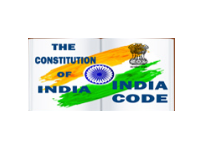Weaknesses of the Current System
This chapter covers the weaknesses in the present systems of promotion, and placement, including empanelment and selection for particular positions, under the Central Staffing Scheme.
8.1 Promotions
8.1.1 The Group identified the following major weakness in the current system of promotions:
- Since suitability for promotion is judged solely on the basis of the ACRs, which in turn are afflicted by a serious problem of grade inflation (most officers typically obtaining “Very Good” or “Outstanding” grades), it is difficult to distinguish between officers on the basis of merit, and almost all officers are routinely promoted. Promotions are generally denied only if there are vigilance cases pending or contemplated against the officer.
- This breeds complacency among mediocre, status-quo minded officers, coupled with frustration on the part of competent, pro-active officers, who see that the system makes no distinction between them and their non-performing colleagues. On the other hand , they are more vulnerable to criticism and attack as their pro-active actions may lead to occasional, bona-fide mistakes (“those who do nothing make no mistakes”). Hence, officers try to “play safe” by inaction rather than pro-actively addressing administrative and policy issues. Thus, a system where non-performance is safe and may be rewarded while performance is risky and may be punished (or at least not recognized) has emerged.
- There has been a growing tendency to resort to sycophancy and unhealthy networking as the means to obtain “outstanding” assessments, and hence promotions, rather than proving one’s merit through actual performance.
- There is no formal evaluation of an officer’s ability to perform at the higher level, where the required skills, mindset, knowledge base, aptitudes, and other attributes may be significantly different. The current promotion system only evaluates how the officer performed at the lower level. This is clearly inadequate, especially for senior positions.
8.1.2 The result is that many officers who reach senior positions involving program and policy formulation are ill-equipped by way of skills, knowledge, aptitude, and mindset for these roles.
8.2 Placements:
Empanelment
8.2.1 The weaknesses in the empanelment system are similar to those of the promotion system, although a significantly higher proportion of officers fail to be selected for the panel. Here again, the sole dependence on the ACR , from which, owing to pervasive grade inflation, it is difficult to distinguish between the performance levels of officers, is the principal source of the problems. The result, once again, is that many officers in the panel are ill-equipped for the program and policy formulation positions that they come to occupy.
8.2.2 Yet another problem arises from the fact that the members of the Screening Committee, being all serving civil servants, are not perceived to be sufficiently independent. Accordingly, unstructured influences are believed to prevail in the empanelment of otherwise undeserving officers. The empanelment process is also not seen as transparent, in that the criteria for inclusion in the panel is not revealed, leading to speculation on the extent to which pressures have been brought to bear on the Screening Committee.
8.2.3 The empanelment process and criteria do not take into account the capacities of an officer to undertake policy-making and program formulation roles, and only evaluates officers on how they performed at lower levels (which, in practice, may mean how few mistakes they committed instead of what they actually achieved at the lower level).
Selection for Particular Positions under the Central Staffing Scheme:
8.2.4 The principal problem with the present system of selections for particular positions under the Central Staffing Scheme is that there is no systematic matching of the competency requirements for particular positions and the backgrounds of the candidate officers. Also, there is no formal system of eliciting the interests and preferences of officers for particular positions, consistent with their background and broader career interests. These lead to unseemly scrambles for particular prestigious positions, in which unstructured influences are pervasive. The result is, frequently, a glaring mismatch between the required competencies and the backgrounds of officers selected for the positions. Career profiles of officers end up displaying the features of a “random walk”, with no regard to building skills and capabilities. In the long-term, these result in poor policy-making and implementation, as well as insufficient capacity for policy-making and public management.






 कार्मिक एवं प्रशिक्षण विभागDepartment of
कार्मिक एवं प्रशिक्षण विभागDepartment of 













